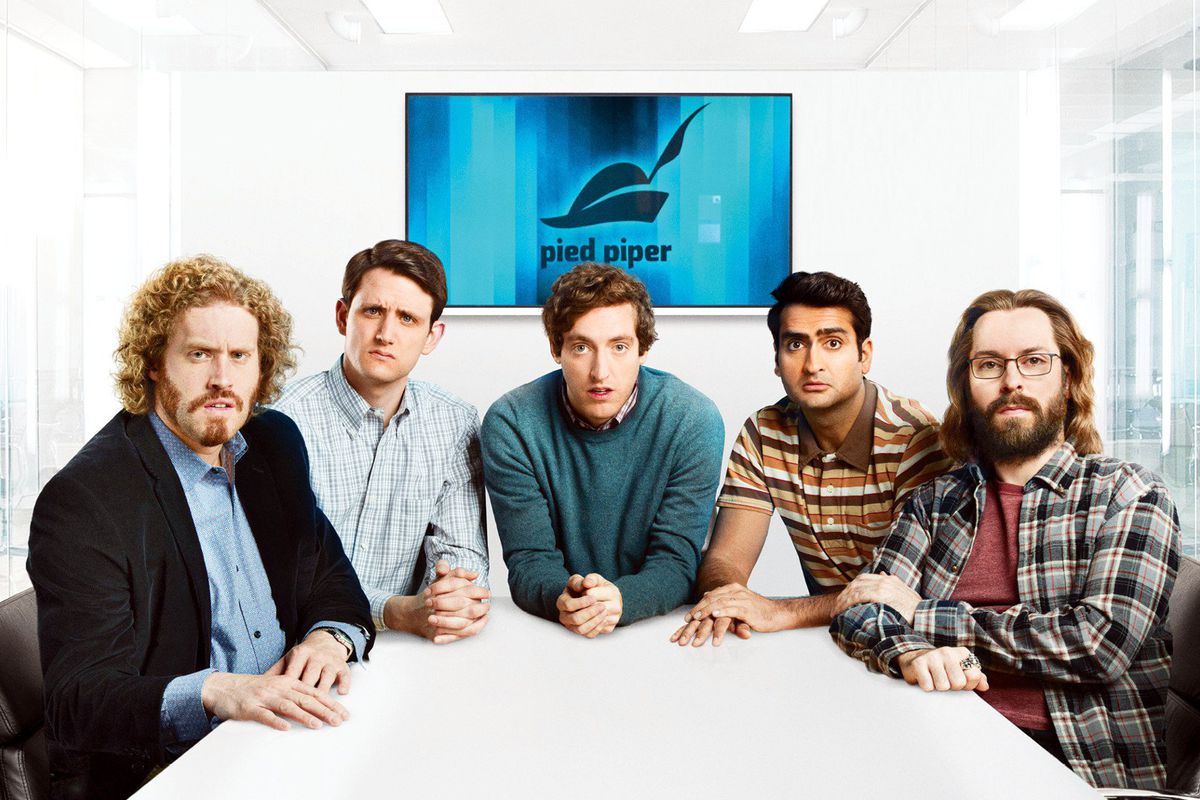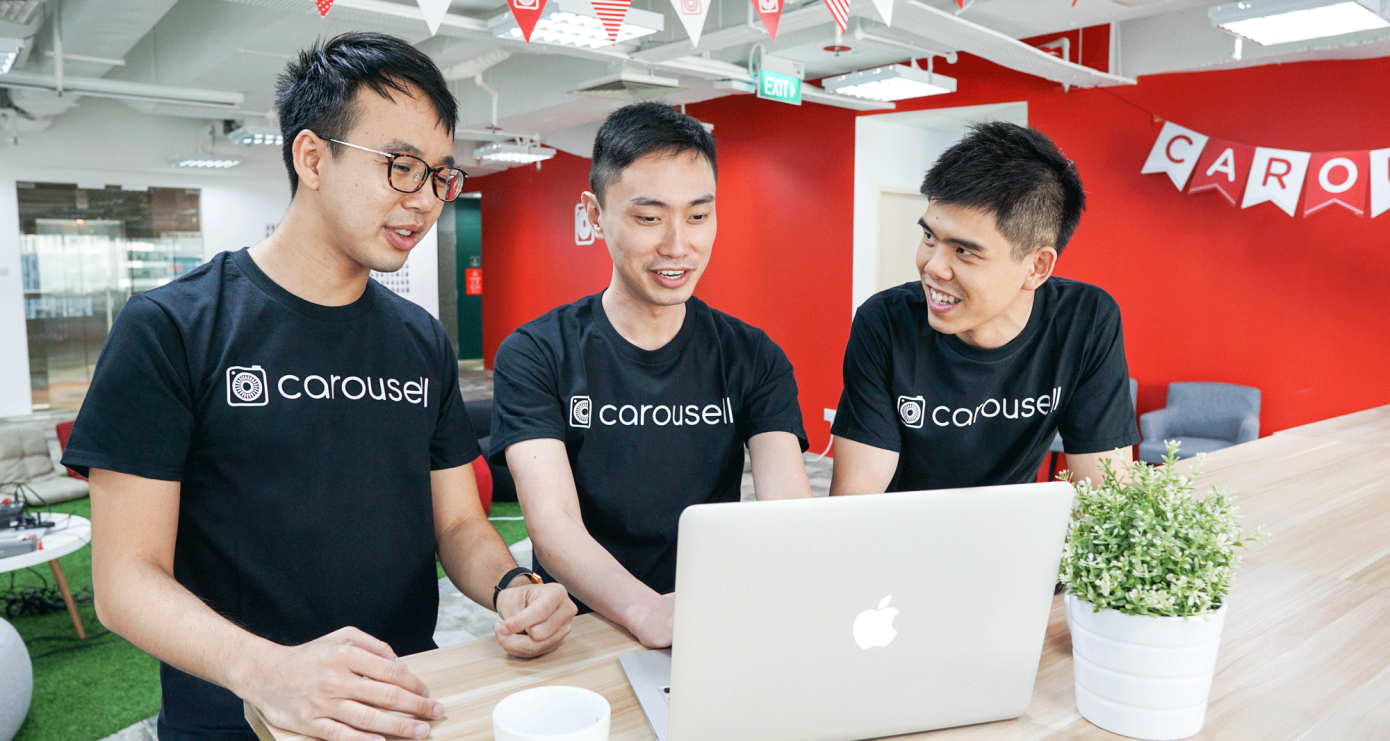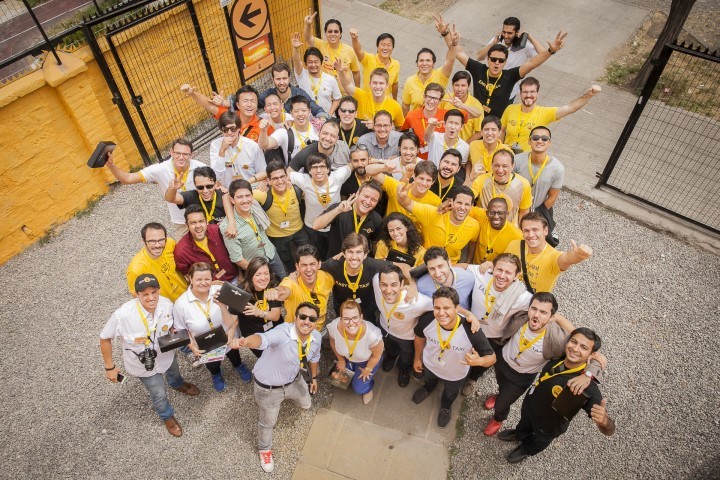Do teams survive after the hackathon?

The benefits of participating in a hackathon is one of those topics that will always be discussed. Each side has its own arguments. Collaboration, hype, team spirit - they say alone. "So what?" - others gloomily and economically respond.
The participation in hackathons in its cyclic structure is very similar to one-time acquaintances in Tinder: people get to know each other, find common interests, do business, maybe take a memory photo, and easily disperse, again taking up an active search for fresh sensations and knowledge. Those same 48 hours remain in memory as a bright moment - and only occasionally meetings at hackathons (and on dates too) grow into serious projects. It’s all the more interesting to take a closer look at the history of startups that did not grow on the walls of the MIT campus or during the protracted brainstorms of Google teams, but from the spontaneous association of several young people at the next hackathon.
Feedback is our everything
One of the reasons Marcus Tan, Lucas Ngu, and Kek Xu Ryu decided to participate in the Singapore version of Startup Weekend 2012 was because the event was held within the walls of their native National University of Singapore. For each of them, it was the first hackathon and the stated goal of participation was ordinary - “to make a cool project that will help solve an important problem”. The result of 54 hours of hard work, desperate disputes and intermittent sleep was the unconditional victory of the prototype of the SnapSell application - the usual mobile variation on the marketplace in our time, where users sell and buy various things from each other.

However, the typical hackathon victory story has evolved. “Through our landing, we received several hundred letters, we even received tweets with questions about whether the application can be downloaded right now. This gave us confidence that we need to move on: to assemble a team and leave work, ”recalls Kek Sue Ryu. Two months later, young people synchronously wrote a letter of resignation and began to turn a successful idea into a working application for iOS.
It will be two whole years before the company, which changed its name to Carousell, attracts 800 thousand dollars in the sowing round. By mid-2018, when the founders celebrated the sixth anniversary of the launch of the project, and the total amount of transactions through Carousell was more than $ 5 billion, almost every resident of Singapore, Malaysia and Thailand already knew about their application. Universal fame and record turnover helped attract large investments - Asian and American investors invested more than $ 126 million in the company.
Necessary people
Most likely, Talis Gomez did not know anything about Uber when he was going to a hackathon in Rio de Janeiro in 2011. According to Gomez, he was developing the idea of an application for monitoring buses. Everything changed after he had to spend half an hour at a stop in the pouring rain, waiting for a taxi. The Easy Taxi application with which it was possible to order and track the location of the assigned taxi easily won the Startup Weekend hackathon. The event with the highest concentration of young and active children from all over South America gave Gomez the most important thing - purposeful, burning-up partners with whom you could go through fire, water and copper pipes of subsequent pitches, search for investments and hard work on the application.

Now Easy Taxi is one of the largest ride hailing services in the world, operating in 30 countries and regularly absorbing less successful competitors in Spanish-speaking markets. So, in early 2019, a deal was taken to take over the Spanish company Cabify, the most famous Uber-like service in Spain. Maybe they should also start by looking for a team at the hackathon?
Do everything to be noticed
A similar story happened with Aftership - one of the most famous package tracking services, which has fans in Russia. Andrew Chen and Teddy Chen met under the roof of the Hong Kong Startup Weekend. Immediately after the victory, future celebrities of online retail threw all their energy and received a cash prize on the election campaign - in order to win the hearts of business angels, they needed to win the global stage SW2011. The 90-second video about the project, required by the rules of the competition, did not shine with quality - the partners made it in a few hours using the services for animating slides and integrating English voice acting (both spoke very average English).
“Our story has become viral - and this is the main reason why we won the global tour. We achieved that 7 editions were written about us and in each article there was a link for voting for us. One cool publication called us “three idiots” and after that all of Hong Kong found out about us. About 5,000 people voted for us - not such a big figure. The victory [in the world stage] came as a surprise to us, but we were just happy, ”Andrew wrote later on the corporate blog.
Often the most difficult task for an artist, writer, director is to turn crumpled thoughts into a clear text, sketch, or finished script. Hackathons are just about that. They provide an environment where, in record time, you can turn an abstract idea into lines of code, thumbnails of application pages, and prototype plastic. And then - get a feedback and decide whether to do something further with this. There is at least one general characteristic for all startups born from ashes, empty coffee cups and peelings from bananas left after the next hackathon - the idea and its initial embodiment were too good to “give it all up”.
Many potential startups like to repeat that in the version of the universe where Apple, Facebook, Uber and Amazon are hard to come up with something fundamentally new and really large-scale. Meanwhile, the practice of world hackathons and startup challenges shows that there are still chances to leave a mark in eternity, or at least make good money on a cool idea. Of course, single-mindedness is clearly not enough. We need a “critical mass”, that minimum concentration of talented people at which “clashes” of the necessary characters and competencies occur.
The Digital Breakthrough hackathon from the Russia-Country of Opportunities platform is the very event that is large enough to provide a “breeding ground” for world-class startups. Judge for yourself: 40 cities of the regional stage, a prize fund of 10 million rubles and grant fund of 200 million rubles. Perhaps you are the very IT specialist, designer or manager whose project will embody this digital breakthrough. Until you try, you don’t know. Do not be afraid of your ideas, feel free to recruit a team and change the world!
